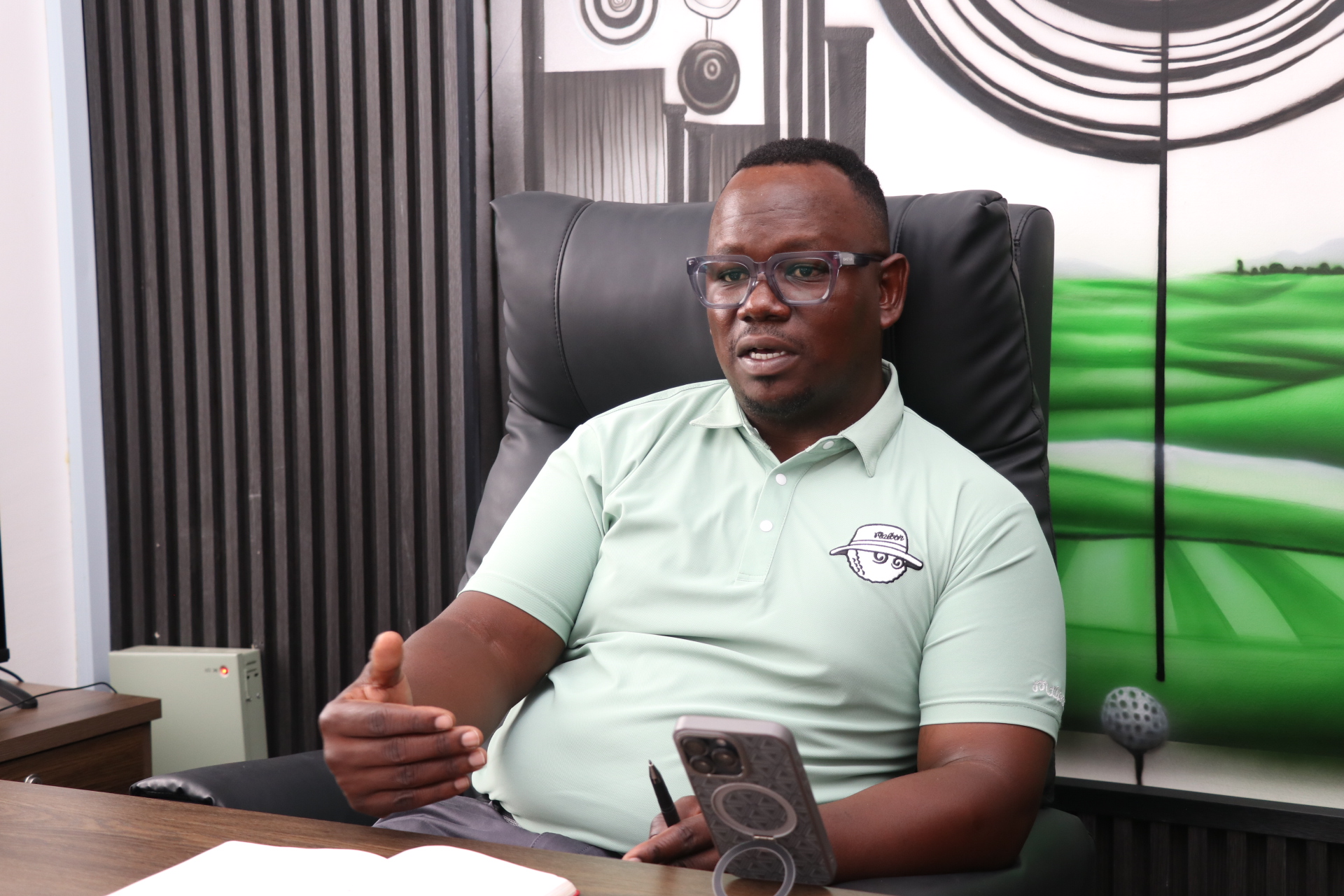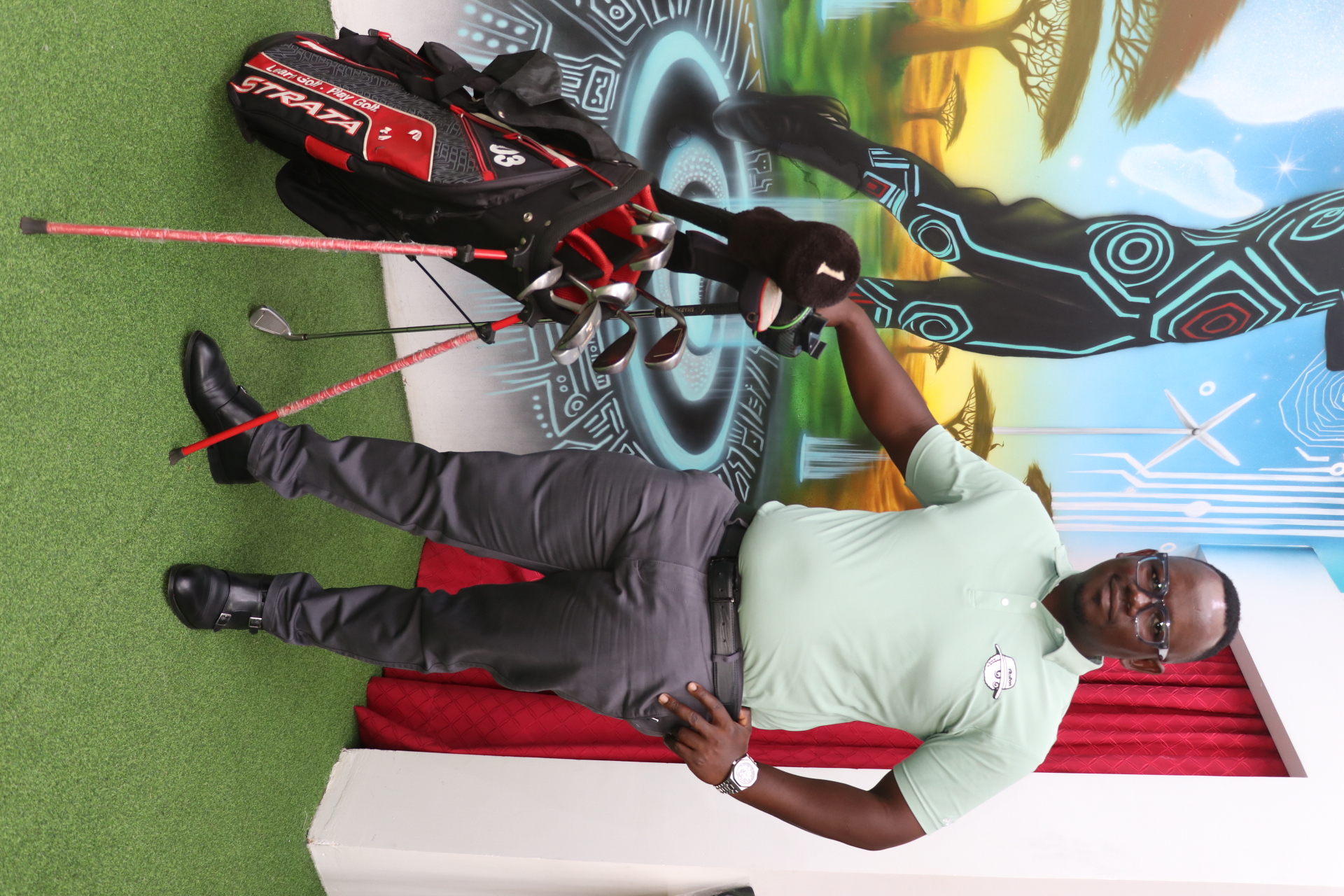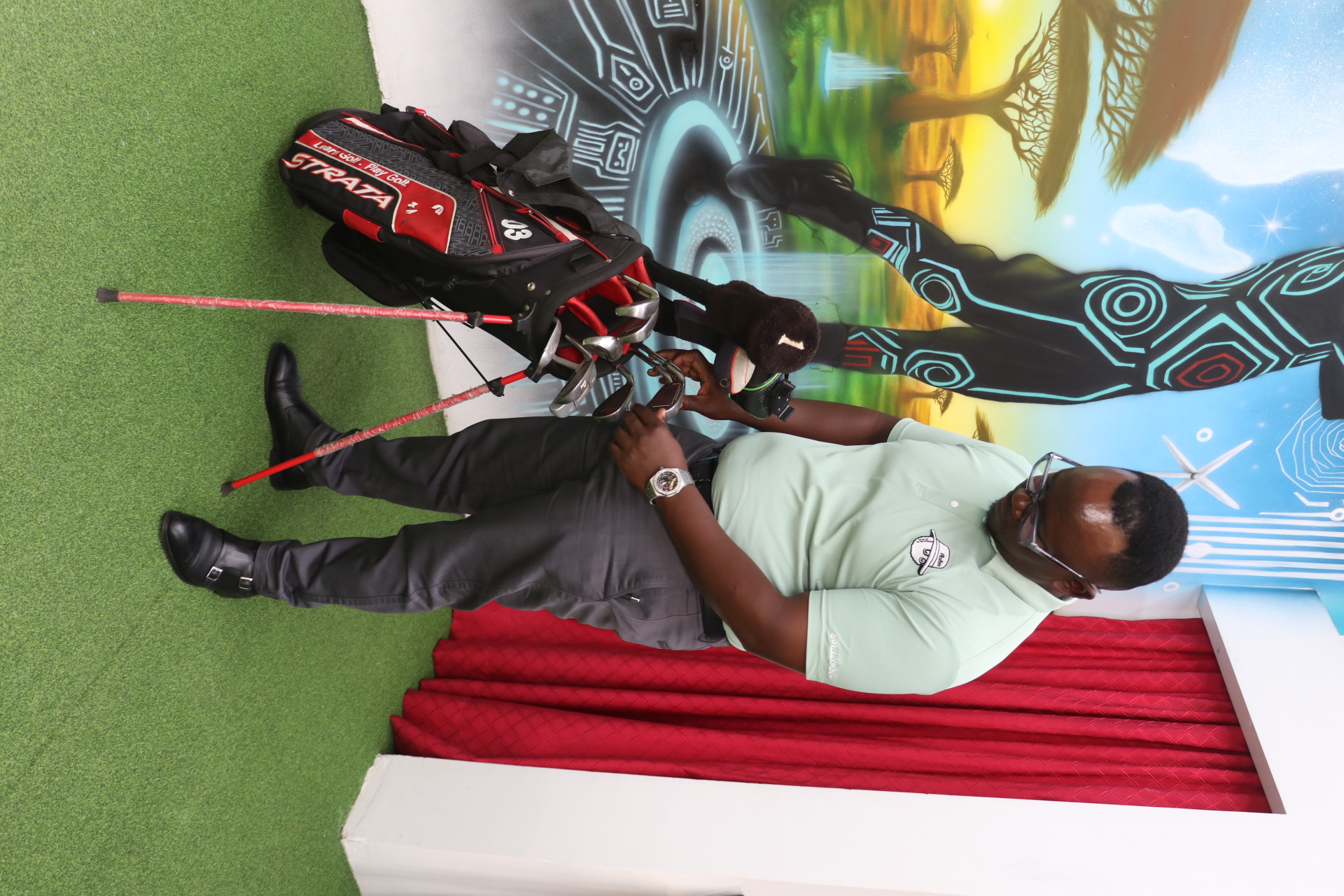
 Young Entrepreneurs Network(YEN) Golf offices at Runda Mall, Nairobi /LEAH MUKANGAI
Young Entrepreneurs Network(YEN) Golf offices at Runda Mall, Nairobi /LEAH MUKANGAI
For years,
golf in Kenya has carried the reputation of being a sport for the privileged
few.
Membership
fees at exclusive clubs, expensive equipment and rigid entry requirements
fueled the perception that only the wealthy could afford to play.
But Kamau
Nyabwengi, the founder and chief executive officer of YEN Golf, is determined
to change that narrative.
“Golf has
always been known as a rich man’s sport, which is a misconception,” Nyabwengi
explained during an interview.
“You do
not have to really have a lot of money to play golf. You can learn how to play
even without getting membership, which is most of the time the expensive
aspect.”
Nyabwengi
has built YEN Golf into what is today Kenya’s leading golf academy, training
more than 3,500 new golfers in just eight years.
What began
as a student networking group has grown into a platform that combines
professional development, personal connections and the chance to learn a sport
that many thought was beyond their reach.
His mission is clear: make golf accessible to everyone; young professionals, entrepreneurs, children and even differently abled players.

From a student
network to a golf academy
The
journey to YEN Golf began not with golf, but with an idea.
Nyabwengi
first created the Young Entrepreneurs Network (YEN) while still a student.
It started
as a Facebook group, a space for young people to connect, share ideas and build
opportunities in business.
Over time,
however, he began to see how networking and golf could intersect.
“When you
play golf, you play as a maximum of four people. As you are playing, you get to
walk with these people over four hours and interact a lot,” he said.
“There’s a
really good chance for you to exchange business or just get to know what the
other person is doing. Golf is closely associated with networking and that’s
how we married the two.”
That
marriage gave birth to YEN Golf, which has grown from a small group of learners
on Sundays to a structured academy that holds sessions three days a week and
runs multiple programs simultaneously.
Lowering
the cost of entry
Cost has
long been a barrier to golf.
Nyabwengi
and his team designed training packages that deliberately reduce that entry
point.
Their
Learn Golf in Eight Weeks program offers an affordable, practical introduction.
At Windsor
Golf Hotel and Country Club, the program costs Sh33,500, while at Golf Park on
Ngong Road, it is Sh28,500.
The fee
covers eight weeks of structured training, including access to equipment,
meaning that beginners do not need to buy clubs upfront.
“All you
will need is a golf attire,” Nyabwengi said.
“It does
not need to be complicated—just a polo t-shirt, shorts or cotton trousers, a
skirt and any sports shoes will do. That is how easy it is to start.”
For
children, the program runs at Sh22,500 for eight weeks, ensuring that the next
generation of golfers can be nurtured from an early age.
The beauty
of the model, Nyabwengi explains, is that students do not need to be members of
a golf club to get started.
Club membership, sometimes running into hundreds of thousands of shillings, can be considered later, once learners are confident and decide they want to continue playing regularly.

Building
a growing community
Since its
launch, YEN Golf has steadily expanded. From a handful of learners, the academy
now trains between 30 and 60 people every month.
The demand
grew so steadily that the program had to be offered not just on Sundays, but on
Fridays and Saturdays as well.
“We can
confidently say we are the leading golf academy in Kenya,” Nyabwengi said.
“There is
no other single entity outside of golf clubs that has trained as many new
golfers as we have.”
The
academy does more than teach beginners. It ensures continuity by linking
players with golf clubs, organising tournaments and building a community around
the sport.
This way,
learners do not simply complete training and stop playing, they become part of
a vibrant network of golfers who continue to grow their skills.
Golf
for Everyone
At the
heart of YEN Golf’s philosophy is inclusivity.
Nyabwengi
believes golf should not be restricted to a small elite group but opened up to
all who want to play.
“We
believe that anyone who wants to play should be able to,” he said.
“It should
not just be reserved for the rich. Everybody, from whichever walk of life,
should be able to learn and play.”
This
commitment has led YEN Golf to create opportunities for children, women and
differently abled people.
In
collaboration with Golden Tee, an initiative supporting players with
intellectual and physical disabilities, YEN Golf has organised tournaments and
specialised training sessions to ensure that no one is left out of the game.
The
academy also runs a charitable arm, the YEN Golf Foundation, which raises funds
for community projects.
Among its
initiatives is the Lulu Memorial Library in Siaya County, a project that
extends the academy’s ethos of empowerment beyond golf into education and
social development.
Innovation
and technology
As the
academy grows, technology is playing an increasingly central role.
YEN Golf
already uses social media platforms such as Instagram, Facebook, LinkedIn and
WhatsApp to engage with its community.
The next
big step is the launch of a mobile app, expected early next year.
The app
will allow users to book tournaments, find playing partners and access rewards
for referrals.
It will
also provide a digital space for golfers to connect with clubs and keep track
of their progress.
“Our
business model is new,” Nyabwengi said. “We bring together groups of eight to
twelve people to learn golf over eight weeks, and as they learn, they also
network. That makes the program unique and valuable.”
Beyond
Kenya: Regional ambitions
While its
operations are currently centered in Nairobi, YEN Golf is already looking
beyond Kenya’s borders.
Nyabwengi
has his eyes on Rwanda as the next frontier, with plans to expand there by
2026.
“We want
to replicate this model in other African countries,” he said.
“Just like
in Kenya, golf elsewhere is seen as a sport for a few. But it doesn’t have to
be that way. South Africa has over 450 golf courses. Kenya has about 45. We
want to push participation so that anyone who wants to play can do so.”
Why now?
The timing
could not be better. The COVID-19 pandemic, despite its challenges, drew new
attention to golf.
As a
non-contact sport played outdoors in small groups, it was considered safe
during restrictions.
This
exposure, combined with a rising middle class looking for new recreational
outlets, created fertile ground for YEN Golf’s mission.
“Golf is
not boring, and it’s not a game for old people,” Nyabwengi said.
“By the
time you finish 18 holes, you’ve walked 10 to 13 kilometers. It’s great for
physical fitness and mental well-being.”
The challenges
ahead
Nyabwengi
admits that challenges remain. Private clubs with restrictive memberships, the
high cost of equipment, and the limited number of public golf courses still
keep the sport out of reach for many.
He
believes solutions such as virtual memberships and tax incentives on equipment
could help lower these barriers.
Still, he
is optimistic.
“Consistency
is key,” he said. “If you keep moving forward, even at a small pace, you
separate yourself from the competition.”
“Our
vision is to keep growing, keep making golf accessible, and eventually build a
culture where everyone who wants to play has the chance.”
YEN Golf
is not just teaching a sport, it is reshaping perceptions. By lowering costs,
simplifying entry requirements, and building a community around the game, the
academy is showing that golf can be as accessible as any other sport.
For those who once looked at golf as a world closed off to them, Nyabwengi has a simple message: now is the time to play.














